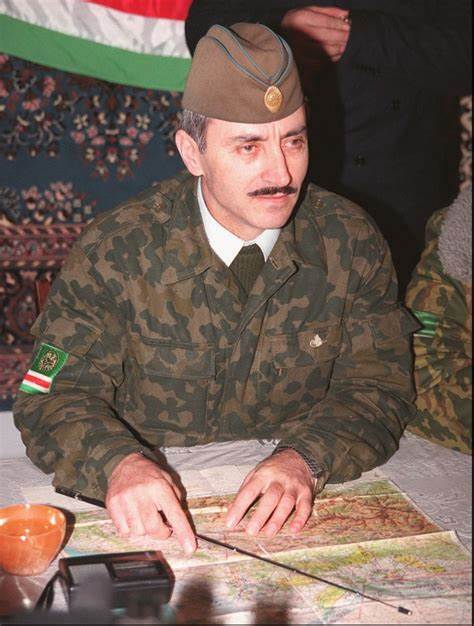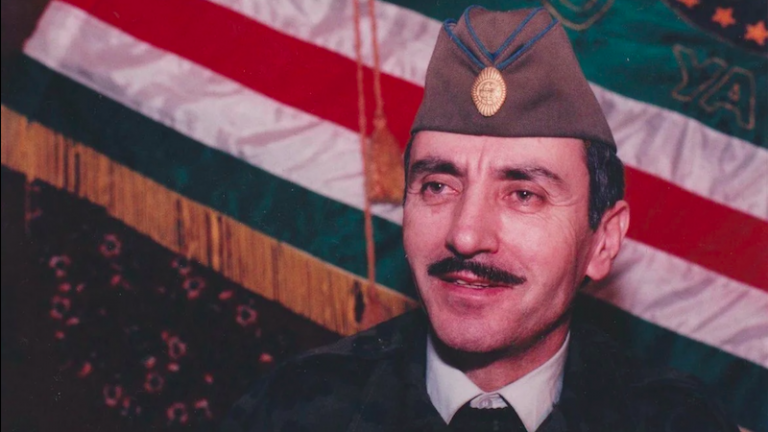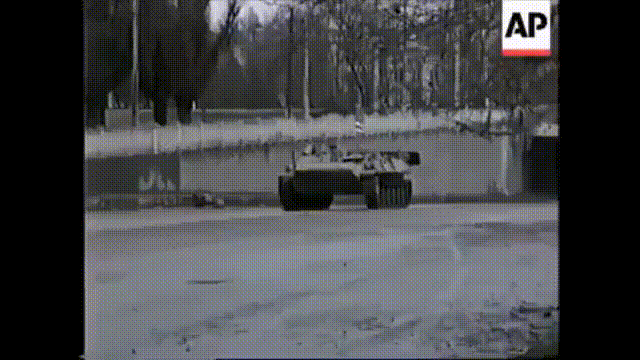Chronicle of Chechen Independence up to the end of First war
Here is a quick run down and summary on how the timeline went from independence to war in Chechnya.
1990
23 – 25 Nov 1st Chechen National Congress in Grozny. 1,000 delegates decide on independence for Chechnya.
1991
8 Jun Full National Congress of the Chechen People; the former Soviet air force general Dzhokhar Dudaev is elected Speaker. August Failed coup in Moscow, Dudaev supports Gorbachev and Yeltsin.
1 Sep Full National Congress dissolves the Supreme Soviet of Chechnya by decree; all key positions of power are occupied by Dudaev’s National Guard; the statue of Lenin is thrown in the river; a Provisional Committee of the Republic is established; the Islamic Path Party (Beslan Gantimirov) sends 7,000 fighters to support Dudaev; Yeltsin appoints the toppled Supreme Soviet as a Provisional Soviet.
5 Oct National Guard storms KGB headquarters in Grozny; Moscow calls for Dudaev’s National Guard to be disarmed.
27 Oct New parliament elected with Dudaev elected President
8 Nov Dudaev declares Chechnya’s sovereignty and independence
1992
12 Mar New Constitution enters into force
31 Mar Failed coup by alternative government formed under Ruslan Khasbulatov in Moscow; Chechnya refuses to sign the Federation Treaty.
from May Economic blockade, all Chechen accounts are frozen, access roads and air traffic are blocked
June 12th Motorised Infantry Training Division leaves Chechnya.
Dec & Jan ’93 Dudaev proposes transferring certain rights of sovereignty to Russia and joining the CIS.
1993
April Dudaev dissolves parliament
December Failed opposition coup
1994
from May Russia openly supports the opposition but all armed attacks on the Dudaev government fail.
11 Dec Russian tank units invade Chechnya
19 Dec Shelling of Grozny begins, many civilian casualties, approx. 280,000 people flee
31 Dec Unsecured Russian tank attack on Grozny centre; hundreds of tanks are set on fire or captured by Chechens.
1995
18 Feb Major Russian offensive launched against Gudermes, Argun and Shali
7/8 Apr Massacre of Samashki, use of vacuum bombs, splinter bombs and defoliation agents; 94 civilians tortured and killed
14 Apr Bamut attacked and taken, 400 soldiers killed; Dudaev begins guerrilla warfare
14-17 Jun Shamil Basayev takes about 1,000 hostages in the South Russian town Budyunnovsk and barricades himself in the hospital with them. The hostage-takers demand an end to the shelling of Chechen mountain villages. Two armed attempts at liberation fail and cost 123 lives. The ensuing peace process is above all torpedoed by Yeltsin.
1 Nov Yeltsin appoints the former First Secretary of the Communist Party, Doku Zavgayev, President of Chechnya.
20 Nov & 4 Dec Attacks on Zavgayev and the headquarters of Moscow’s puppet government
8 Dec Moscow and Doku Zavgayev agree on a treaty governing Chechnya’s status within the Russian federation, violating the agreement with Dudaev.
17 Dec Pseudo-parliamentary elections in Chechnya. Doku Zavgayev explained allegedly receives 65% of the votes and is elected as a President himself.
14 – 25 Dec Heavy fighting around Gudermes
1996
9 Jan Failed attack on a Russian airfield in Dagestan led by Salman Raduyev; 3,000 hostages then taken in Kizlyar and barricaded in hospital. Raduyev negotiates with Dagestan to withdraw his men in return for release of hostages.
15 – 17 Jan Disregarding the hostages Russia deploys artillery, tanks, infantry, fighter helicopters, missile launchers and scatter bombs in Pervomaiskoye against Raduyev, who escapes to the mountains with 75 hostages.
21 Apr Chechnya’s first President Dzhokhar Dudaev is killed by a cruise missile; writer Zelimkhan Yandarbiyev is designated his successor.
27/28 May Ceasefire agreement signed in the Kremlin by Yandarbiyev and Chernomyrdin. While this is happening Yeltsin flies to Grozny, designates Doku Zavgayev the only lawful President of Chechnya, declares victory over the Chechen rebels and announces parliamentary elections.
11 – 16 Jun Pseudo-elections for the puppet regime
From 6 Aug Major Chechen offensive, especially on Grozny where 1,000 Russian soldiers are besieged. Grozny is bombarded from the air and ground. Thousands of civilians try to escape.
31 Aug An agreement on the basis for relations between the Russian Federation and the Chechen Republic is signed in Khassav-Yurt (Dagestan) by Maskhadov and Alexander Lebed in the presence of Tom Guildemann, head of the OSCE mission in Grozny.
17 Dec 6 ICRC workers are killed in Novy Atagi
1997
27 Jan Presidential and parliamentary elections in Chechnya organised by the OSCE for $ 350,000. 72 observers and 200 journalists witness Aslan Maskhadov’s election as President with 59.3% of the vote.
12 May A peace treaty is signed in Moscow by Presidents Maskhadov and Yeltsin
The First Russian-Chechen War (1994 – 1996)


All Moscow’s attempts to topple Dudaev with military support from the Communist opposition (i.e. the former Communists), by imposing an economic blockade and by blocking transport routes remained unsuccessful. The ground was prepared for war with a great deal of invective the Russian media. The war began on 11 December 1994.
On 22 April Chechnya’s first President Dzhokhar Dudaev was killed by a cruise missile and the Chechen writer Zelimkhan Yandarbiyev was appointed as his successor. While Yandarbiyev and the former Russian Prime Minister Chernomyrdin were in the Kremlin signing a ceasefire agreement, Yeltsin flew to Grozny, declared victory over the Chechen rebels and announced parliamentary elections.
But these pseudo-elections for a puppet government were followed in August 1996 by a major Chechen offensive, notably on Grozny, where 1,000 Russian soldiers found themselves under siege. Air raids and shelling again prompted thousands of civilians to flee Grozny. But the Chechen advance could no longer be halted. General Lebed, the Commissioner for Chechnya, prevented the all-out defeat of the Russian Army and on 31 August he signed an agreement in Khassav-Yurt (Dagestan) on the basis for relations between the Russian Federation and the Chechen Republic. Russian troops withdrew. Although there were acts of sabotage, as when six International Red Cross workers were murdered in Novy Atagi, but on 27 January 1997 presidential and parliamentary elections were held under the aegis of the OSCE. As 72 election observers and 200 journalists watched, Aslan Maskhadov was elected with 59.3% of the vote. Yeltsin phoned to congratulate him.
On 12 May 1997 Presidents Maskhadov and Yeltsin signed a peace agreement in Moscow, thereby indirectly recognising Chechnya’s sovereignty.
Documentary: The Betrayed (1995)
Documentary Description: As Russian tanks advance over the plains of Chechnya, a group of Russian mothers search for the conscript sons they believe have been captured by the Chechens. They place their trust in Col. Kosov, a Russian liaison officer responsible for organising prisoner exchanges across the front line.
80min, 1995, director: Clive Gordon
Second Chechen War
An image gallery of the Second Chechen War here
